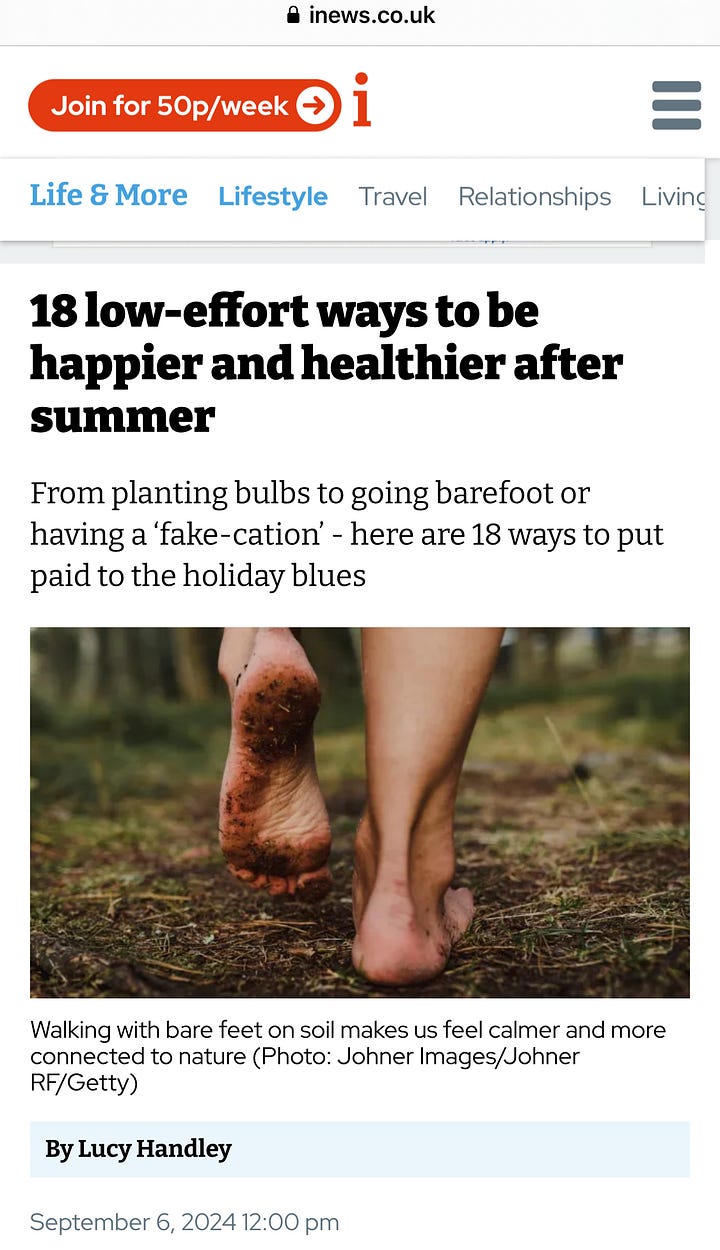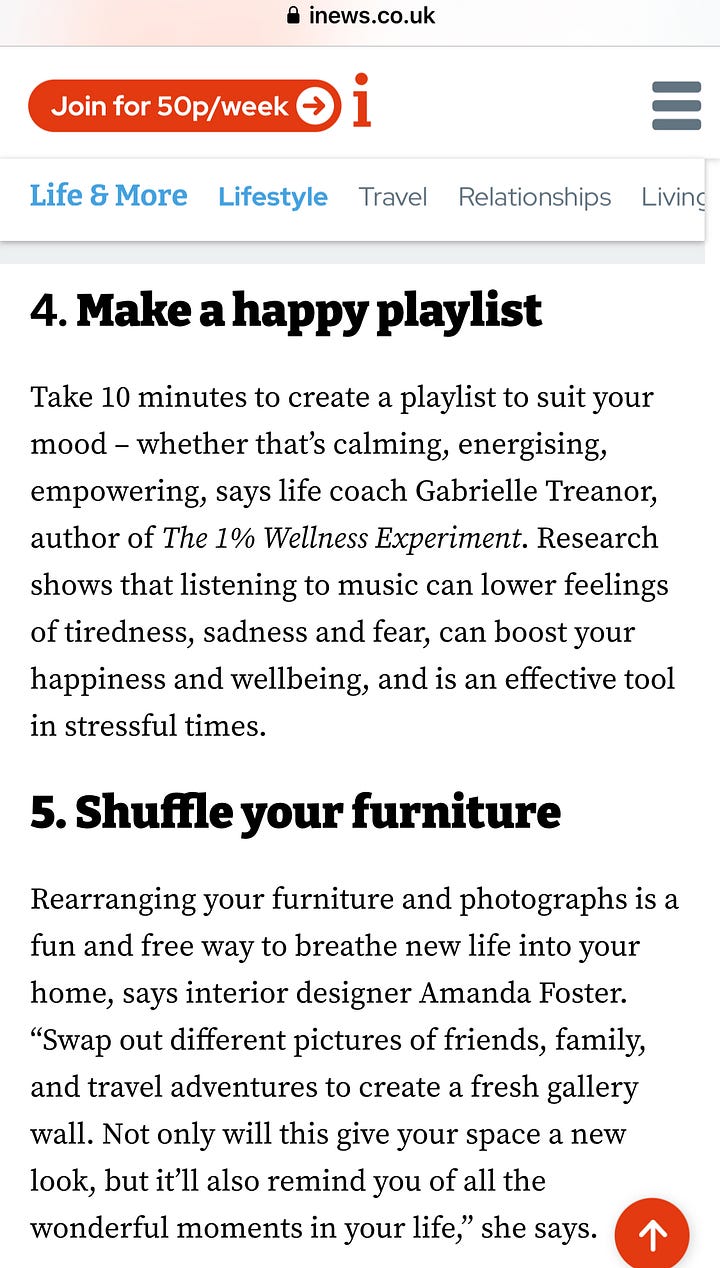Everywhere you look, there's another one
ADHD – the must-have label of the midlife woman?
Are you a part of The Quiet ADHD Club?
It’s an online space where introverted, sensitive, empathetic women who have, or think they have, ADHD can find understanding, guidance, support and connection. If you want to discover how to work with your brain (rather than fight it) and connect with other women who just get it, the Quiet ADHD Club is for you. Find out more and join here, I made it especially for you.
Why are there so many middle-aged women declaring they have ADHD all of a sudden?
Well, there are a few things going on here. Not least is that it may seem like it’s all of a sudden but neurodivergence isn’t something you suddenly, randomly develop as an adult. Nor is it something you’ll automatically grow out of as you grow up.
There’s some thinking that ADHD is linked to trauma and quite a lot of research that suggests it’s inherited (a lot of mums discover they have ADHD due to going through the assessment process with their children).
So why are these women in their middle years not realising their brains are wired differently until so far into their lives?
For starters, like me (I’m 49) they probably grew up with the stereotypical image of ADHD represented by a small white boy who couldn’t sit still and was disruptive in class. Whereas girls are socially conditioned to believe we must sit still, that we need to be obedient and polite and pay attention and don’t interrupt.
Some of those expectations may have felt really hard to meet (I was a daydreamer) and yet we tried really hard because we knew that’s what was expected of us. That’s what we needed to do, it was who we needed to be, to gain approval and acceptance.
Decades of effort, of trying, of striving
Once outside the school grounds the strain of working so hard to be good girls in school may have physically erupted (my late afternoon twirling around the house saw me enrolled in ballet classes) or resulted in emotional meltdowns. But as 1980s thinking was that ADHD only affected young, fidgety boys, girls could be dismissed as overly sensitive, emotional or highly strung.
We learned we needed to keep it together, be the good girl, make those around us happy, not cause a fuss, mess up or disappoint.
So that’s what so many women did.
FOR DECADES.
While studying and navigating relationships and building careers and having children and caring for parents. Sometimes successfully (in whose eyes?), sometimes less so.
Until keeping it together became harder and harder. For a few reasons.
One is hormonal. In perimenopause oestrogen and progesterone levels change and this can play havoc with your body, your emotions, your memory, your sleep… the list goes on. With a neurodivergent brain the rollercoaster takes on more loop-de-loops.
If you’ve been raising children there’s a shift in routine when they become older teenagers or leave home. Routine which, while ADHDers can want to rebel against, can give valuable structure that helps with focus, getting things done, keeping habits going – the stuff of life that can be pretty challenging to an ADHD brain.
But with kids becoming more independent they don’t need routine so much and so mums lose the structure which, unknowingly, was of great benefit to them, as well as their children.
And there’s simply the exhaustion from the decades of keeping it together. Decades of trying to meet expectations and keep up with life admin and make everyone happy and not let anyone down and…
Add in years of feeling like you’re too much and not enough at the same time (the contradiction in itself is mind-boggling) from others implying or saying it outright, as well as your own internal voice chip-chip-chipping away at you for years and years and, frankly, it’s no bloody wonder the wheels are coming off!
Pennies drop, bells ring, lightbulbs flash
These exhausted, perimenopausal, midlife women know something is up. Something has shifted and what they once could cope with (even if it was only just at times) is becoming less and less doable. So they look to other women of a similar age or circumstance to see who else is feeling this way.
That’s when they see or read or hear about women like them, describing what they’ve been struggling with not just now but all their lives. How they’ve been feeling, what they’ve been thinking (so, so much thinking, all the time), the explanation for why they have felt and thought and struggled all their lives and what they’ve done to cope (mask) all this time.
And that’s when pennies drop and bells ring and lightbulbs flash.
Because it isn’t just about being perimenopausal or about the kids growing up or about being tired.
It’s about being seen, in the experiences of other women, for who they really are. For what they’ve been experiencing their whole lives. It’s the explanation, finally, not just for what’s happening now but the explanation for who they are.
But even when there is this explanation women can still struggle to process and believe it because the world is rolling its eyes at yet another overly-dramatic, attention-seeking, middle-aged woman hopping on the neurodivergent bandwagon (more about that here). Which backs up the nagging voice in their heads telling them it’s not an explanation, it’s an excuse.
Even without a formal assessment and diagnosis women are having all the aha moments. They’re seeing so much of themselves in other midlife ADHD women’s descriptions, it’s making so much sense to them and yet they won’t allow themselves to believe it.
But, in my view, if bells are ringing and lightbulbs are flashing, if you feel seen in other ADHD women’s experiences, if it explains what felt unexplainable before – believe it.
You know you best (even if what you think and feel has been minimised, dismissed or ridiculed by others) and you don’t need an official stamp to prove you have ADHD (or, crucially, get support with it).
So, if you wonder why so many middle-aged women have ADHD all of a sudden, the short answer is… they don’t.
And if you think you can’t have ADHD because you’re just looking for an excuse even though you feel it and see it… believe it.
Believe yourself.
I do.
In other news…


My book The 1% Wellness Experiment was featured in an i Newspaper feature, did you spot it? I didn’t but thankfully Lucy Werner did and pinged me a message to let me know.
It feels like the book was published so long ago but it’s only been nine months, today, in fact! I get a thrill any time someone leaves a rating or review online, posts or sends me a pic of the book in a shop or their copy, lets me know what they think of it or what they’re trying from the book. So if you want to share I’d love to hear!
Until next time,
My diary is open to new one-to-one coaching clients. You can click here to find out about how coaching can support you to work with your ADHD, embrace your nature and your strengths, and thrive in a calm and joyful life of your design.
Whether you’re just beginning to recognise potential ADHD traits in yourself or you’re on a long waitlist for an assessment or you’ve had this self-knowledge for a while, it can be a LOT to process as you look back on how your life has been and look ahead to want you do with this information.
Go gently, you’re not alone, we’re in this together.
Photos by Andrea Gilpin
Supporting quiet, sensitive, empathetic, introverted late-(self)diagnosed ADHD women find self-acceptance and understanding, as well as calm and joyful freedom to be their unique, beautiful selves.






Beautifully put as anyways ❤️
Hello, glad to have you back and hope you're doing OK. I've struggled my whole life with not being like everyone else, and I never knew what it was, I was always in trouble at school for daydreaming (I was put on my own on a "naughty table") and it carried on from there. I work full time, have a child etc and from the outside probably look fine, but everything takes me so much more effort than it seems to take most people. My teenage son has ADHD (but has refused a diagnosis in case it affects his future job prospects) and then I realised that's what I have! I was 39 and I'd been perimenopausal for 7 years, so that wasn't helping. It's now three years on and I still haven't been to the GP to start the diagnosis pathway - 1, I never seem to get round to booking an appointment. 2, the length of time it takes scares me and I'm worried I'll be laughed at. 3, I'm worried I'll be judged as "jumping on the bandwagon" and not believed. It's truly changed my life finding out about ADHD (I had two friends who both work in that sector who asked me about mine, then both fell off their chairs laughing when they found out I didn't know that's what I have - over the years I've been diagnosed with anxiety/ depression etc). As a child, a psychologist told me I was a "naughty child who made my mum cry" and that followed me my whole life, plus meant my mum punished me constantly. My heart breaks for that little girl that I was, and I so hope all the awareness nowadays stops more girls going through over forty years of thinking it's their fault and that there is something wrong and bad in them. Now I'm in the process of working out what to deal to start healing and manage it